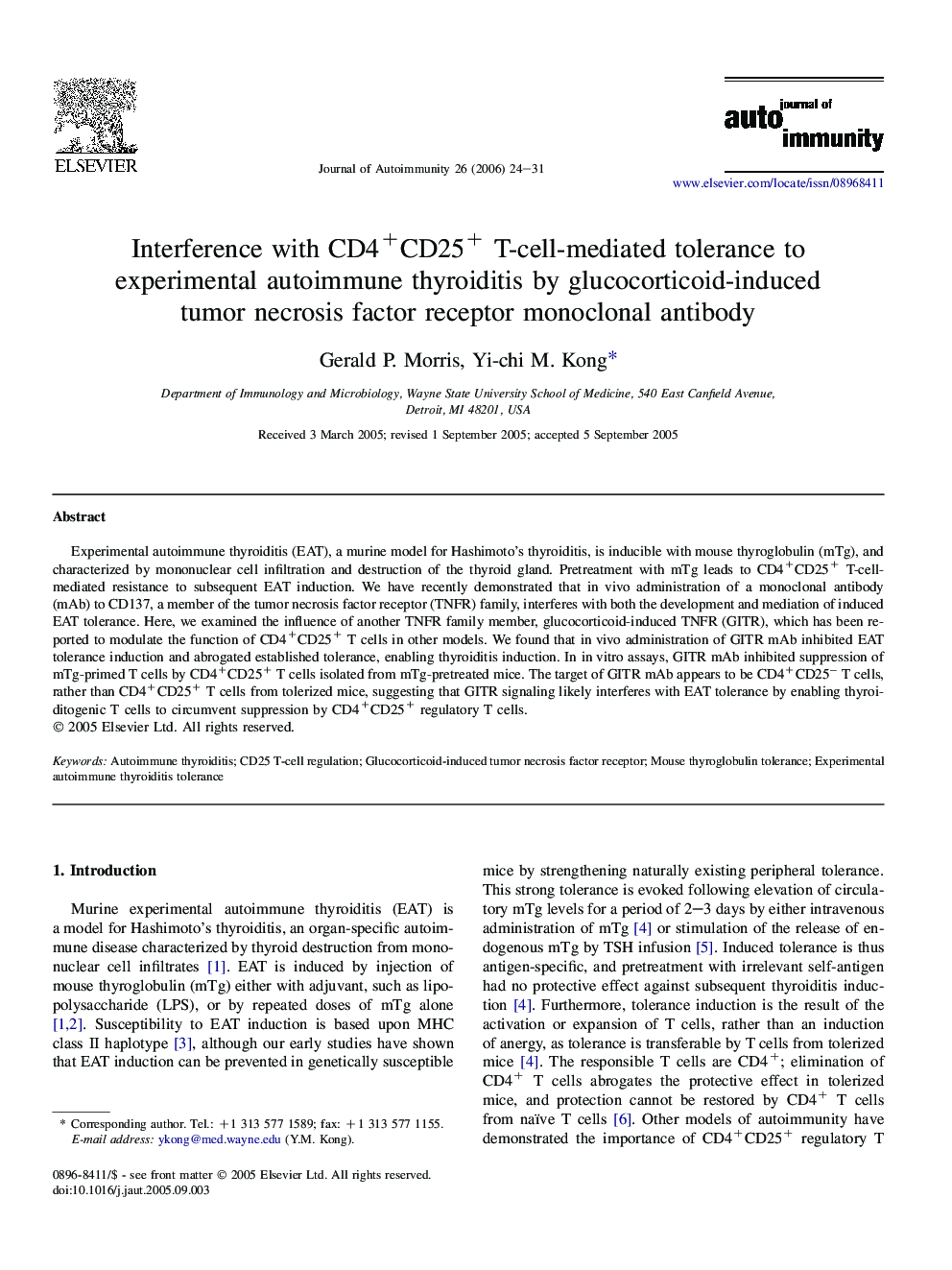| Article ID | Journal | Published Year | Pages | File Type |
|---|---|---|---|---|
| 3368443 | Journal of Autoimmunity | 2006 | 8 Pages |
Experimental autoimmune thyroiditis (EAT), a murine model for Hashimoto's thyroiditis, is inducible with mouse thyroglobulin (mTg), and characterized by mononuclear cell infiltration and destruction of the thyroid gland. Pretreatment with mTg leads to CD4+CD25+ T-cell-mediated resistance to subsequent EAT induction. We have recently demonstrated that in vivo administration of a monoclonal antibody (mAb) to CD137, a member of the tumor necrosis factor receptor (TNFR) family, interferes with both the development and mediation of induced EAT tolerance. Here, we examined the influence of another TNFR family member, glucocorticoid-induced TNFR (GITR), which has been reported to modulate the function of CD4+CD25+ T cells in other models. We found that in vivo administration of GITR mAb inhibited EAT tolerance induction and abrogated established tolerance, enabling thyroiditis induction. In in vitro assays, GITR mAb inhibited suppression of mTg-primed T cells by CD4+CD25+ T cells isolated from mTg-pretreated mice. The target of GITR mAb appears to be CD4+CD25− T cells, rather than CD4+CD25+ T cells from tolerized mice, suggesting that GITR signaling likely interferes with EAT tolerance by enabling thyroiditogenic T cells to circumvent suppression by CD4+CD25+ regulatory T cells.
